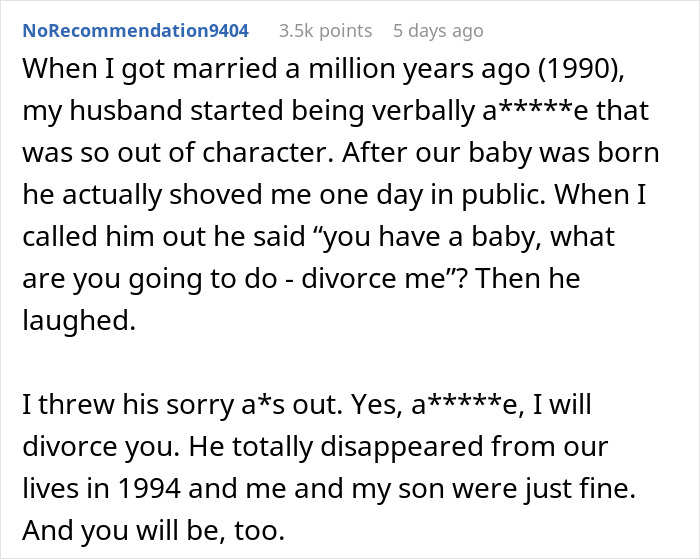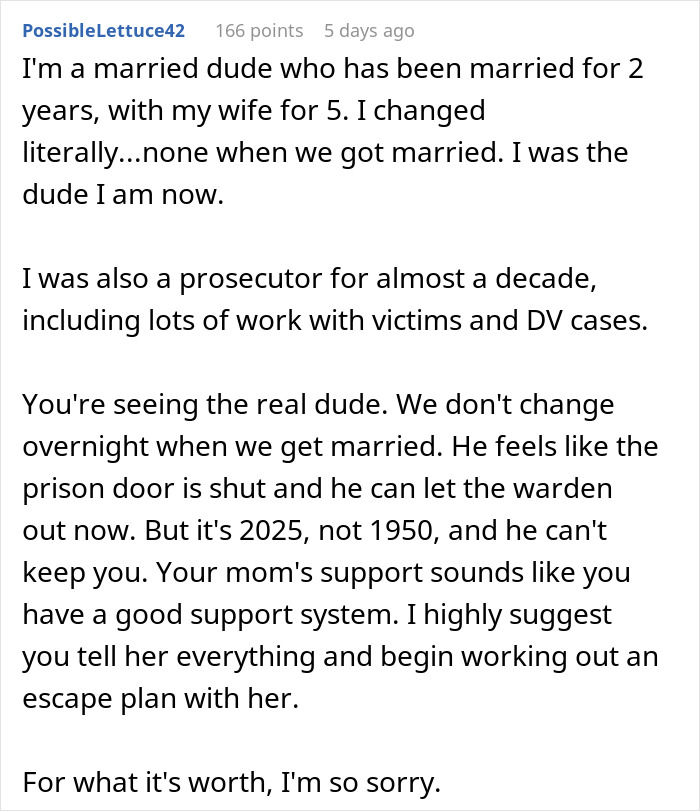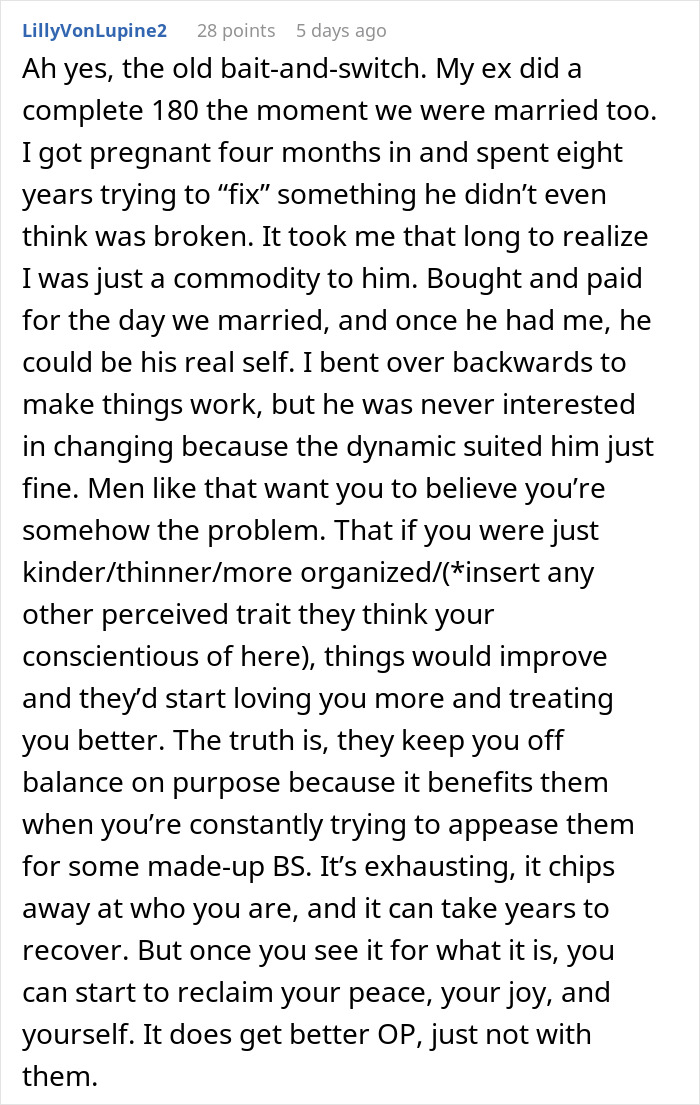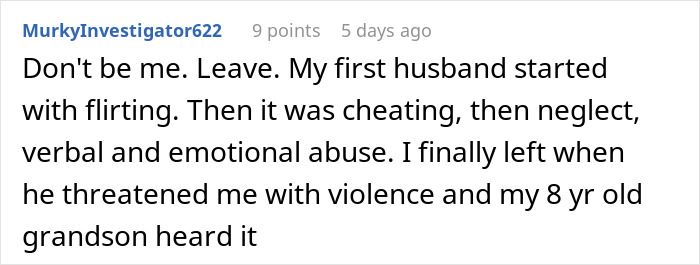Marriage doesn’t always work out, and we see that from almost half of all marriages today ending in divorce. What’s more, 57% of women admit to regretting marrying their husbands at one point in their lives. But what if you don’t even need to wait, and your husband suddenly changes his behavior right after the wedding?
That’s what happened to this woman: she claims her husband started insulting her, flirting with other women in front of her, and disrespecting her in other ways. It got to a point where she could bear no longer, so she decided to ask the Internet for advice.
A woman was baffled by her husband’s sudden personality change after the wedding

Image credits: freepik (not the actual photo)
Apparently, he started insulting her about her weight, flirting with waitresses, and disrespecting her in other ways





Image credits: mstandret / envatoelements (not the actual photo)







Image credits: YuriArcursPeopleimages envatoelements (not the actual photo)

Image credits: ChemistryTricky6851
The woman also shared some alarming things that the husband did, hinting at domestic violence

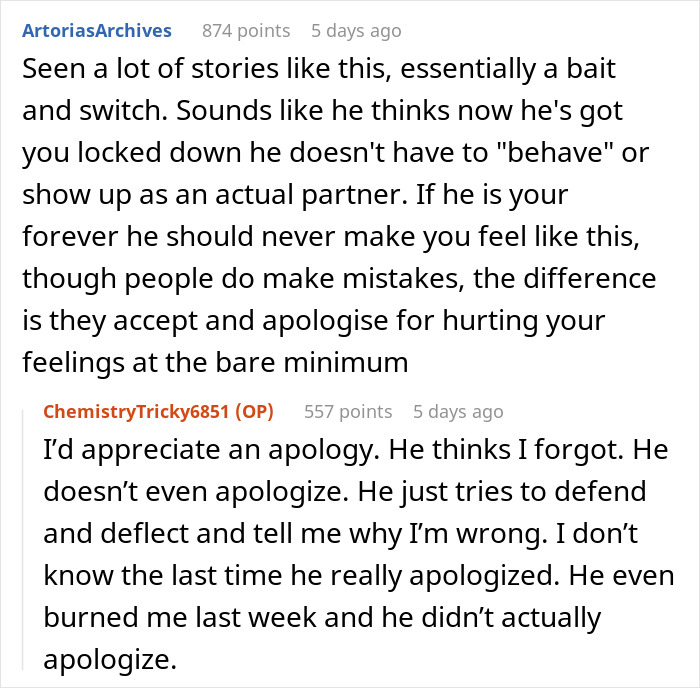



Although not drastic, individuals do experience personality changes after getting married
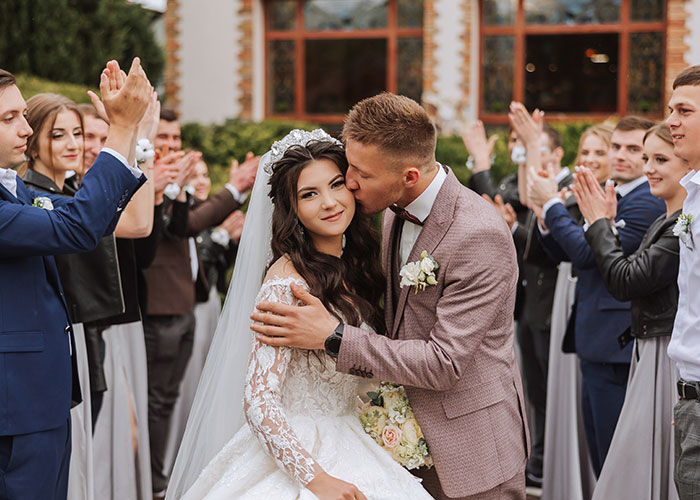
Image credits: vasilij33 / freepik (not the actual photo)
The notion that people don’t change might be slightly misunderstood. When you think about it, you’re probably not the same person you were in your teens or your early twenties, right? And what about friends? Have you ever noticed that you might start to look and act like the people you surround yourself with?
These are not some wild notions or just anecdotal evidence. In 2017, researchers from the University of Georgia conducted a study with heterosexual newlyweds and found that some spouses can change slightly in terms of their identity and personality.
Picking up habits, words, and phrases from your partner with whom you spend every day seems quite normal. However, the researchers, led by the assistant professor of psychology Justin Lavner at the University of Georgia, found that newlyweds experience personality changes no matter their age, relationship status, or how long they’ve lived together before marriage.
Wives and husbands experience different personality changes

Image credits: fxquadro / freepik (not the actual photo)
The authors found three main changes that happen in wives and husbands separately:
- Wives become more closed off, and husbands become more introverted. To unmarried friends, this may seem like the spouses are retreating from social life. Yet, for the married couple, it may mean more commitment to the relationship and dedication to spending time together.
- Women become less anxious, sad, and unhappy, and men become more thorough and careful. Lavner suggests that this is due to partners’ personality traits “rubbing off” on each other. Wives encourage their husbands to be more conscientious, and then they themselves take on their partners’ good qualities in turn.
- Both wives and husbands become less agreeable. Marriage often means learning to adjust to the other person, their need and wants. Unmarried couples may be used to more financial, emotional, and even physical independence, and becoming more impatient and disagreeable when you’re stripped of some of that independence is probably a natural response.
Lavner suggests married couples see the bright side in their and their partner’s personality changes. Oftentimes, when people talk about being unhappy in their relationship, they talk about, ‘Oh, I changed,’ or ‘He changed, she changed.’
“But that can work in both directions, like, ‘Maybe things weren’t as good, and then one of us changed in some way and that really made things better.'”
A spouse’s violent behavior starts off later in the relationship and gradually escalates

Image credits: freepik (not the actual photo)
Sometimes, however, personality changes can be so gruesome that it becomes dangerous for one spouse to stay. And it seems that’s exactly what happened to the wife in this story.
The burn incident indicates that the husband is getting physically violent. And, according to the resources of the United Nations, domestic violence usually escalates “in frequency and severity.”
Isaac Smith, MAT, LCSW, FNTP of Whole Wellness Therapy agrees. He explains that mistreatment happens gradually, and few exploiters will show their true faces at the start. “Everyone puts their best foot forward in the beginning,” he emphasizes.
Because it’s gradual, victims often become used to mistreatment. Smith says that our brains attempt to protect us, and leaving becomes too radical a shift: we simply don’t want the change. That’s why leaving is more complicated than just packing your bags and walking out.
There’s also a lot of stigma about those who delay leaving or don’t leave at all. But it’s not about being strong enough, Smith says. “There are plenty of ‘strong people’ who still end up suffering from [mistreatment],” he writes. “[This idea] minimizes the trauma and invites unnecessary shame and guilt—familiar emotions for people who have suffered [violence].”
Let us hope that the OP finds the courage to leave this situation and posts an update with a happy ending – because she truly deserves it.
People urged the woman to get out of the marriage as quickly as possible


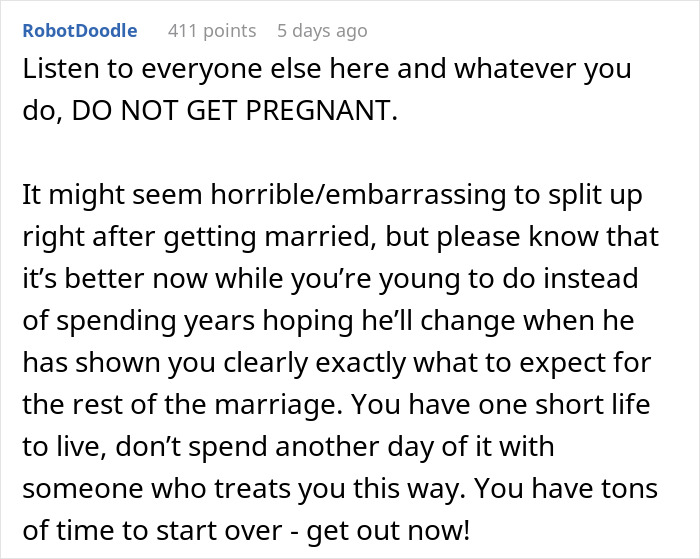






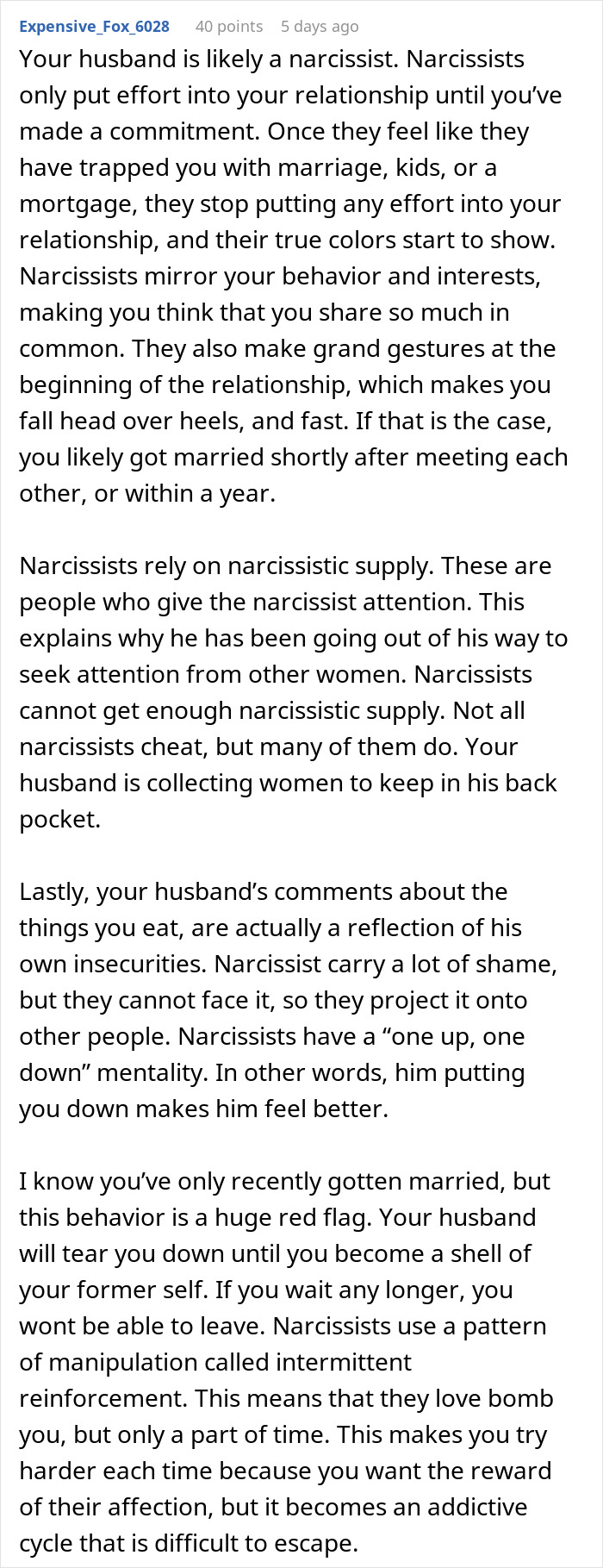

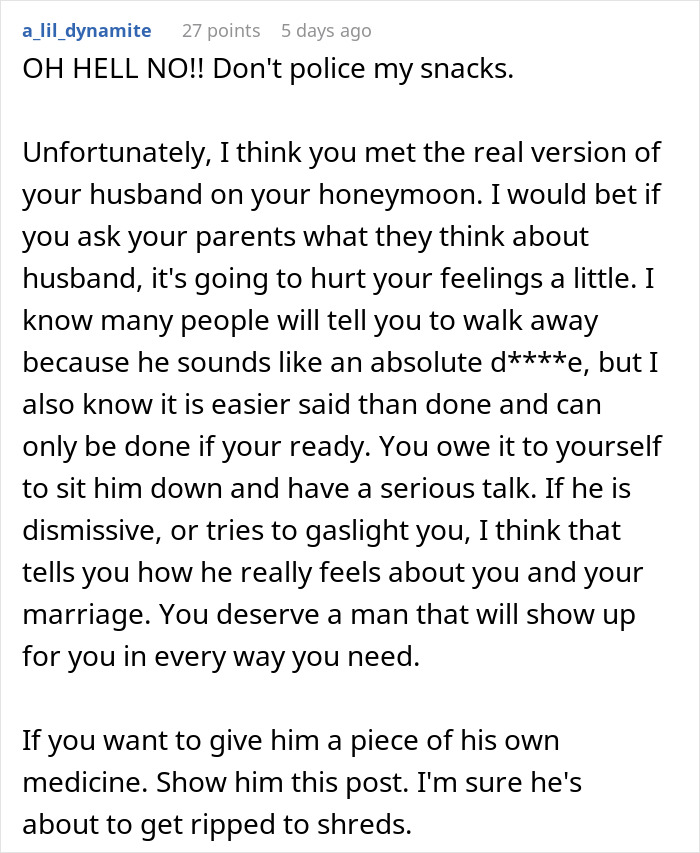





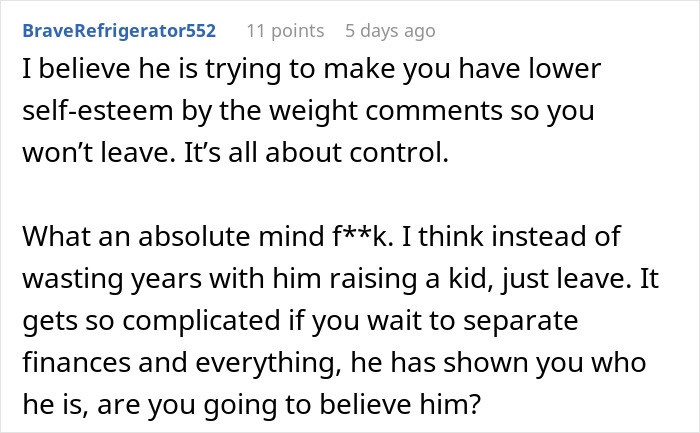


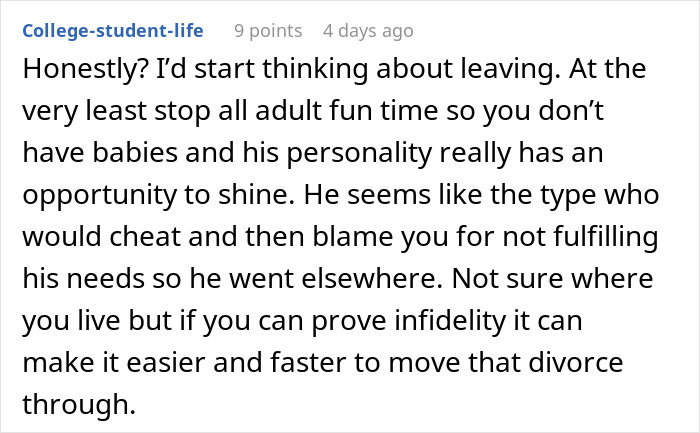
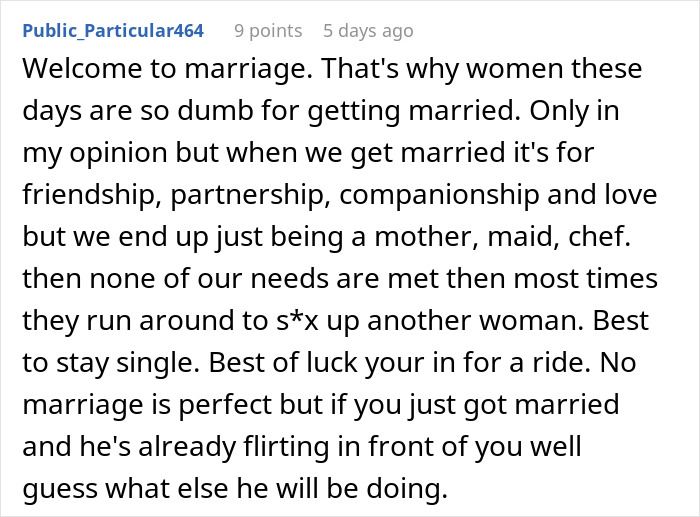





Others shared their horror stories about violent husbands: “Don’t be me. Leave”
